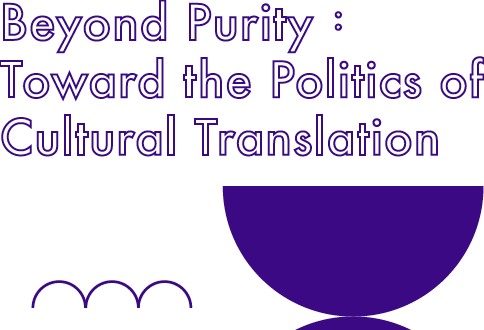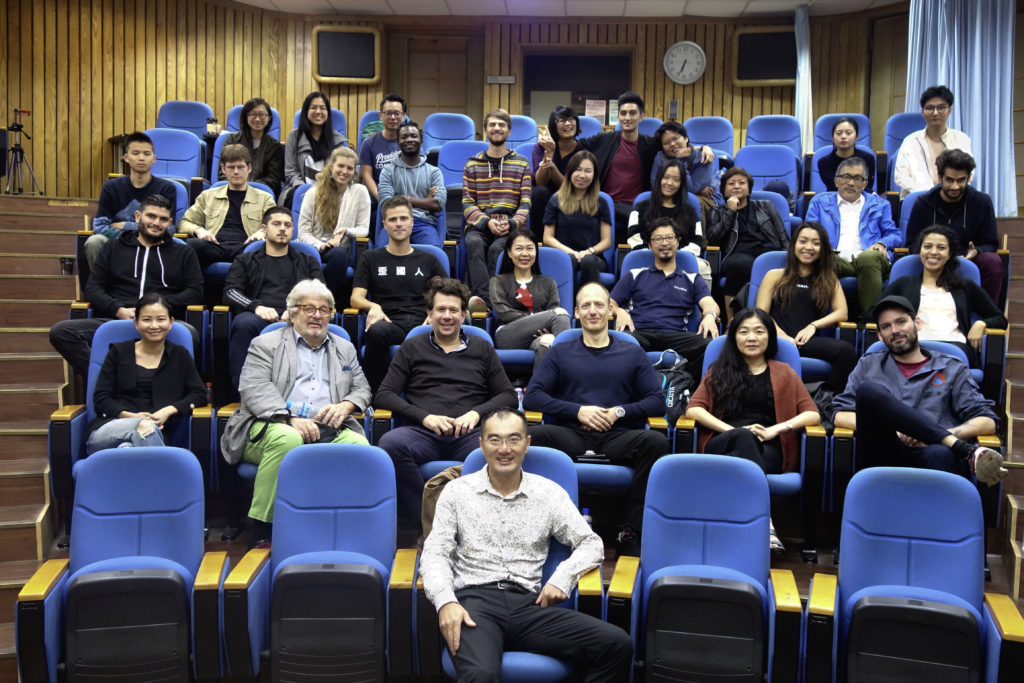Transcultural Collaboration 2016
Lecture Series and Conference on Transculturality
Preliminary Note
This lecture series and seminar will frame the 2nd edition of a transcultural and cross-disciplinary graduate semester program entitled “Transcultural Collaboration,” a new educational format and initiative involving various art universities from Switzerland, Hong Kong, China, Taiwan, Japan, and Singapore. The program rests on the fundamental need to discuss and understand “globalization” and the questions and issues arising therefrom. It is obvious that globalization not only involves the expansion of production, consumption, and communication, but also the problems, and the potentials, of differentiation/distinction, of provoking otherness, of different forms of cultural evolution and blending, and of influencing power structures.
Lectures will take place throughout the semester in Zurich and Hong Kong and will end with a conference in Taipei. All lectures are open to the public and free of charge. This year’s thematic focus, which also serves as a starting point for participants’ explorations in Zurich, is described below.
Beyond Purity
The dynamics of globalization, and increasing transcultural polyphony, are bringing about fundamental changes. What is given is shifted or even becomes groundless. Traditions grow fragile, experiences of the present uncertain, and our vision of the future rather vague. At the same time, the prevailing conditions are questioned: While those in power assert themselves, radical changes seem possible, which in turn evokes reactions on different levels.
Some prefer to retreat to the long established, in an attempt to (re-)draw clear boundaries. They refer to the power of heritage, to ideological ideas, to religious beliefs or political visions. They claim something as their “own” and want to keep this “pure.” Rejecting the unfamiliar, they want to stay “by themselves” and to keep away from, exclude, or even kill the other.
Others, who may belong to the previous group, profess to have the correct (i.e., pure) idea of political leadership, of society and welfare, of (national) history and tradition. Such agents may be fathers, husbands, teachers, priests, politicians, parties, churches, sects, etc. (and also include the respective female variants). They rule over others without seeking first their acceptance.
Still others imagine “purity” as something more harmless, but no less normative. For them the conception of purity is central to imagining a perfect way of life: fitness, healthy food, no drugs, asceticism, hygiene, cosmetics, cosmetic surgery, etc
And finally some conceive “purity” as something wholly different: as an ethical ideal of human existence in accordance with the cosmos, for example, the purity of harmony as a long-term objective for overcoming the sense of captivity within our daily life.
On the other hand, many are open to experimentation, to questioning traditional conditions, and to disentangling themselves from existing dependencies. They are curious about the unfamiliar, about how the circumstances of life could be different, and therefore about change and new possibilities of self-determination such as democracy. Once again, even revolutions seem possible in different parts of world.
These people confess to lead a normal life with all its temptations. They are sceptical of any ideal/ideological conceptions of the world. They consider “the dirty” (the bastardly, the defiled, the hybrid, etc.) attractive: They let themselves be seduced, experiment with blendings and the unfamiliar, attempt self-indulgence, and risk obscenity. Here the arts can be a productive field of critical and subversive practice.
“Pure” and “dirty” are categories that are often used in the context of individual and collective identity building — although in very different ways. “Purity” may constitute a racial model (as in fascism) or the domination over others (as in any dictatorship). It may comprise an aseptic/unsullied way of life (as the “New Subject” in neo-liberalism) or a philosophical and ethical ideal (as in Daoism). In relation to these examples, “dirty” refers to strangers/non-members/outsiders, who aspire to self-determination, democracy and diversity, or to those who want to lead a contradictory, “uncontrolled” life, and to those who accept the limitations of human and tolerate greed, violence, and hatred.
Therefore our playing with identity building, which is becoming more and more complex and demanding within the context of transculturality and globalization, appears in these very diverse settings of “purity” and “dirtiness.” Using specific examples, the forthcoming lecture series and seminar aim to observe, analyze, and reflect on this fundamental problem.
Lecture Series
Zurich: 22 Aug – 9 September / Hong Kong: 12 September – 7 November 2016
Closely associated with the semester program and various regional/national contexts, lectures will discuss the problems and questions emerging between the poles of purity and impurity. Speakers will explore specific examples and/or analyze specific terms.
Conference at TNUA/ Taipei: 3-4 November 2016
Concluding the lecture series, this 1-2 day seminar will pursue the questions raised and no doubt add new ones. Involving a mixture of lectures and panel discussions, it will address the topics of the lecture series and critically explore, complement, and further develop discussion. On a second level, the conference will involve short presentations, workshops, and interventions, to enable participants to make individual observations and to share their experiences of transculturality. The lecture series will be devoted to the same guiding question as the conference: How might we progress beyond normative boundaries and heteronomy on a theoretical and practical level, in everyday life and politics, in the arts and in our thinking, no matter whether they are “pure” or “impure.” Our working assumption is that this can only happen within the context of experienced and reflected transculturality.


